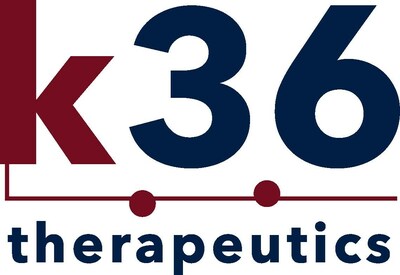K36 Therapeutics Announces Multiple Poster Presentations Highlighting the First Clinical Data for KTX-1001 and Other Developmental Compounds at the 66th American Society of Hematology (ASH) Annual Meeting
K36 Therapeutics announced multiple poster presentations at the 66th American Society of Hematology (ASH) Annual Meeting, highlighting the first clinical data for their MMSET/NSD2 inhibitors, KTX-1001 and KTX-1029. The presentations will cover the dose escalation part of KTX-1001's Phase 1 study, showing increased exposure and decreased H3K36me2 biomarker, indicating clear target engagement. KTX-1029, a potent and selective MMSET inhibitor, demonstrated efficacy in preclinical models. Together, these data support the rationale for targeting MMSET in multiple myeloma. The favorable tolerability profile of KTX-1001 and promising clinical activity suggest its potential as a first-in-class therapy for t(4;14) multiple myeloma patients.
K36 Therapeutics ha annunciato numerose presentazioni poster al 66° Congresso Annuale dell'American Society of Hematology (ASH), evidenziando i primi dati clinici per i loro inibitori MMSET/NSD2, KTX-1001 e KTX-1029. Le presentazioni copriranno la parte di escalazione della dose dello studio di Fase 1 di KTX-1001, mostrando un aumento dell'esposizione e una diminuzione del biomarker H3K36me2, indicando un chiaro coinvolgimento del target. KTX-1029, un potente e selettivo inibitore di MMSET, ha dimostrato efficacia in modelli preclinici. Insieme, questi dati supportano la giustificazione per targetizzare MMSET nel mieloma multiplo. Il profilo di tollerabilità favorevole di KTX-1001 e l'attività clinica promettente suggeriscono il suo potenziale come terapia di prima classe per i pazienti con mieloma multiplo t(4;14).
K36 Therapeutics anunció múltiples presentaciones en formato póster en la 66ª Reunión Anual de la Sociedad Americana de Hematología (ASH), destacando los primeros datos clínicos de sus inhibidores de MMSET/NSD2, KTX-1001 y KTX-1029. Las presentaciones abordarán la parte de escalación de dosis del estudio de Fase 1 de KTX-1001, mostrando un aumento en la exposición y una disminución del biomarcador H3K36me2, indicando un claro compromiso con el objetivo. KTX-1029, un potente y selectivo inhibidor de MMSET, demostró eficacia en modelos preclínicos. Juntos, estos datos respaldan la justificación de dirigirse a MMSET en el mieloma múltiple. El perfil de tolerancia favorable de KTX-1001 y la prometedora actividad clínica sugieren su potencial como terapia de primera clase para pacientes con mieloma múltiple t(4;14).
K36 Therapeutics는 제66회 미국혈액학회(ASH) 연례 회의에서 여러 포스터 발표를 진행하며, KTX-1001 및 KTX-1029의 MMSET/NSD2 억제제에 대한 첫 번째 임상 데이터를 강조했습니다. 발표에서는 KTX-1001의 1상 연구에서 용량 증가 부분을 다루며, 노출이 증가하고 H3K36me2 바이오마커가 감소하여 명확한 표적 참여를 보여줍니다. KTX-1029는 강력하고 선택적인 MMSET 억제제로, 전임상 모델에서 효능을 입증했습니다. 이 데이터들은 다발성 골수종에서 MMSET을 타겟팅하는 타당성을 뒷받침합니다. KTX-1001의 유리한 내약성 프로필과 유망한 임상 활이는 t(4;14) 다발성 골수종 환자들에게 1세대 치료제로서의 잠재력을 시사합니다.
K36 Therapeutics a annoncé plusieurs présentations de posters lors de la 66e Réunion Annuelle de l'American Society of Hematology (ASH), mettant en avant les premières données cliniques de leurs inhibiteurs MMSET/NSD2, KTX-1001 et KTX-1029. Les présentations couvriront la partie d'escalade de dose de l'étude de Phase 1 de KTX-1001, montrant une exposition accrue et une diminution du biomarqueur H3K36me2, indiquant un engagement clair du ciblage. KTX-1029, un inhibiteur MMSET puissant et sélectif, a démontré son efficacité dans des modèles précliniques. Ensemble, ces données soutiennent la justification de cibler MMSET dans le myélome multiple. Le profil de tolérance favorable de KTX-1001 et son activité clinique prometteuse suggèrent son potentiel en tant que thérapie de première classe pour les patients atteints de myélome multiple t(4;14).
K36 Therapeutics hat mehrere Posterpräsentationen auf dem 66. Jahresmeeting der American Society of Hematology (ASH) angekündigt, wobei die ersten klinischen Daten für ihre MMSET/NSD2-Inhibitoren, KTX-1001 und KTX-1029, hervorgehoben werden. Die Präsentationen werden den Dosissteigerungsteil der Phase-1-Studie von KTX-1001 behandeln, wobei eine erhöhte Exposition und ein gesenkt H3K36me2-Biomarker gezeigt werden, was auf ein klares Target-Engagement hinweist. KTX-1029, ein potenter und selektiver MMSET-Inhibitor, hat in präklinischen Modellen Wirksamkeit gezeigt. Zusammen unterstützen diese Daten die Begründung, MMSET beim multiplen Myelom anzuvisieren. Das positive Verträglichkeitsprofil von KTX-1001 und die vielversprechende klinische Aktivität deutet auf das Potenzial hin, eine neuartige Therapie für Patienten mit t(4;14) multiplem Myelom zu sein.
- KTX-1001 demonstrated increased exposure and decreased H3K36me2 biomarker in Phase 1 study.
- KTX-1029 showed efficacy in preclinical models, including PI-sensitive and -resistant settings.
- KTX-1001 has a favorable tolerability profile and promising clinical activity.
- None.
Insights
This Phase 1 clinical trial data for KTX-1001 represents a significant milestone in multiple myeloma treatment development. The drug shows promising early results with clear target engagement and a favorable tolerability profile in treating t(4;14) multiple myeloma patients.
Key technical findings include:
- Dose-dependent increase in KTX-1001 exposure
- Corresponding decrease in H3K36me2 biomarker
- Favorable safety profile at relevant doses
- Potential for combination therapy with standard treatments
The development of KTX-1029 as a complementary compound further strengthens the company's pipeline. While early-stage, these results validate the mechanism of targeting MMSET in multiple myeloma treatment, particularly for high-risk patients with options.
Results collectively support the mechanism of action and rationale for targeting MMSET in patients with multiple myeloma
The KTX-1001 presentations will feature the first results from the dose escalation part of the Phase 1 study and characterization of the asset's biochemical activity. A third poster will characterize the in vitro and in vivo efficacy of KTX-1029, a novel, potent, selective inhibitor of MMSET. Taken together, the results collectively support the mechanism of action and rationale for targeting MMSET in patients with multiple myeloma.
"I am excited to report on the clinical progress of KTX-1001, a potent, oral MMSET inhibitor being developed for multiple myeloma patients with translocation t(4;14). The dose-escalation phase of the clinical trial demonstrates an increase in KTX-1001 exposure by dose and a corresponding decrease in H3K36me2 biomarker, reflecting clear target engagement that is consistent with preclinical models" said Pierre Bories, MD, PhD, Hematologist, Early Phase Clinical Research Unit Hematology and Clinical Research, Onco-Occitanie Network, Toulouse University Cancer Institute Oncopole.
"We've seen significant momentum in enrollment since our first presentation at ASH last year, highlighting the opportunity for KTX-1001 to meet the unmet need for oral therapies in high-risk patients," said Terry Connolly, Ph.D., President and Chief Executive Officer of K36. "I want to thank the patients, investigators, and their teams for their commitment to generating crucial data from our trial. KTX-1001 has shown a favorable tolerability profile, and promising clinical activity reinforcing its potential as a first in class targeted therapy for t(4;14) multiple myeloma patients who have exhausted standard treatments."
Additional presentation details are outlined below:
Title: First Results from the Dose Escalation Part of the Phase 1 Study of KTX1001, an Oral, First-in-Class, Potent Inhibitor of MMSET/NSD2 for Relapsed/Refractory Multiple Myeloma (RRMM)
Poster Number: 3370
Session Name: 654. Multiple Myeloma: Pharmacologic Therapies: Poster II
Date & Time: Sunday, December 8, 2024, 6:00 PM-8:00 PM PST
"This trial highlights the potential of personalized oral therapies like KTX-1001 to treat multiple myeloma with a targeted medicine designed for high-risk patients," said Benjamin Winograd, M.D. Ph.D., K36's Chief Medical Officer. "The safety profile of the oral therapy at relevant doses allows us to move forward with the dose expansion phase of the trial. In 2025, we will combine our oral investigational drug with standard of care agents, starting with a proteasome inhibitor and IMiDS to continue the development of KTX-1001 for the treatment of t(4;14) patients"
Title: Characterization of the Biochemical Activity of KTX-1001, a Selective Small Molecule NSD2 Inhibitor, in Surface Plasmon Resonance (SPR)
Poster Number: 2205
Session Name: 802. Chemical Biology and Experimental Therapeutics
Date & Time: Saturday, December 7, 2024, 5:30 PM-7:30 PM PST
- Describes a novel method for utilizing surface plasmon resonance (SPR) to interrogate the binding of KTX-1001 to the SET domain of MMSET.
- These data demonstrate that one of the ways that KTX-1001 reduces H3K36me2 is by displacing S-adenosyl methionine (SAM), the cofactor responsible for donating the methyl groups to H3K36.
Title: KTX-1029, a Potent, Selective MMSET/NSD2 Inhibitor Is Effective in t(4;14) Multiple Myeloma Preclinical Models
Poster Number: 1878
Session Name: 651. Multiple Myeloma and Plasma Cell Dyscrasias
Date & Time: Saturday, December 7, 2024, 5:30 PM-7:30 PM PST
- Describes the in vitro and in vivo efficacy of KTX-1029, a novel, potent, selective inhibitor of MMSET. KTX-1029 demonstrated efficacy in MM preclinical models as a single agent and in combination with the proteasome inhibitors bortezomib and carfilzomib in both PI-sensitive and -resistant settings.
- The data generated with KTX-1029 compliments the data generated with the company's orally-available clinical candidate, KTX-1001 and adds to the body of evidence for targeting MMSET in multiple myeloma patients with t(4;14) and for further exploration of combination regimens with multiple myeloma standards of care.
Full abstracts can be found at the ASH Annual Meeting website at www.Hematology.org.
About KTX-1001
KTX-1001 is a novel, first-in-class, potent, and selective methyltransferase inhibitor of the catalytic activity of MMSET/NSD2. It is an orally administered small molecule developed initially for the treatment of relapsed and refractory multiple myeloma, with a focus on patients with the t(4;14) translocation. This inhibitor offers a promising avenue for addressing this challenging high risk patient population.
About the KTX-1001 Phase 1 Clinical Trial
The Phase 1 clinical trial is a single-arm, open-label study in subjects with relapsed and refractory multiple myeloma. It is a multi-part clinical trial with dose escalation followed by an expansion cohort in patients with the genetic translocation t(4;14) to evaluate the safety, tolerability, and preliminary efficacy of different doses of KTX-1001. For more information and participating centers visit NCT05651932.
About K36 Therapeutics, Inc.
Founded in February 2021, K36 is a privately held biotech company backed by Atlas Venture, F-Prime Capital, Eight Roads Ventures, Nextech and Bristol Myers Squibb (NYSE:BMS). Our mission is to translate epigenetic modulation of oncogenic pathways into first-in-class small molecule therapeutics for the benefit of cancer patients worldwide. For more information, please visit www.k36tx.com and follow us on LinkedIn.
K36 COMPANY CONTACT
Soo Bang | sbang@k36tx.com
![]() View original content to download multimedia:https://www.prnewswire.com/news-releases/k36-therapeutics-announces-multiple-poster-presentations-highlighting-the-first-clinical-data-for-ktx-1001-and-other-developmental-compounds-at-the-66th-american-society-of-hematology-ash-annual-meeting-302320321.html
View original content to download multimedia:https://www.prnewswire.com/news-releases/k36-therapeutics-announces-multiple-poster-presentations-highlighting-the-first-clinical-data-for-ktx-1001-and-other-developmental-compounds-at-the-66th-american-society-of-hematology-ash-annual-meeting-302320321.html
SOURCE K36 Therapeutics








